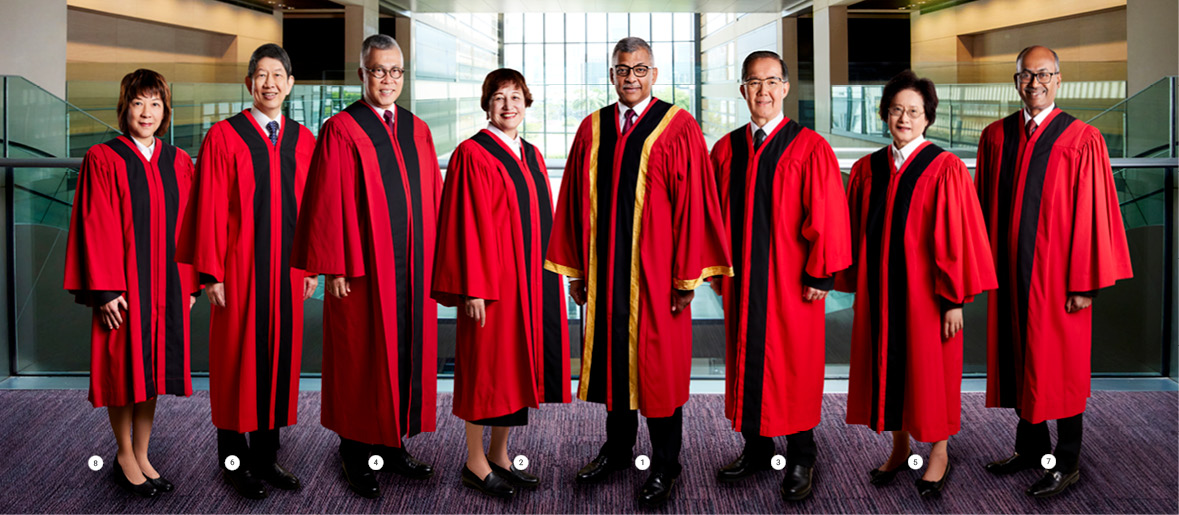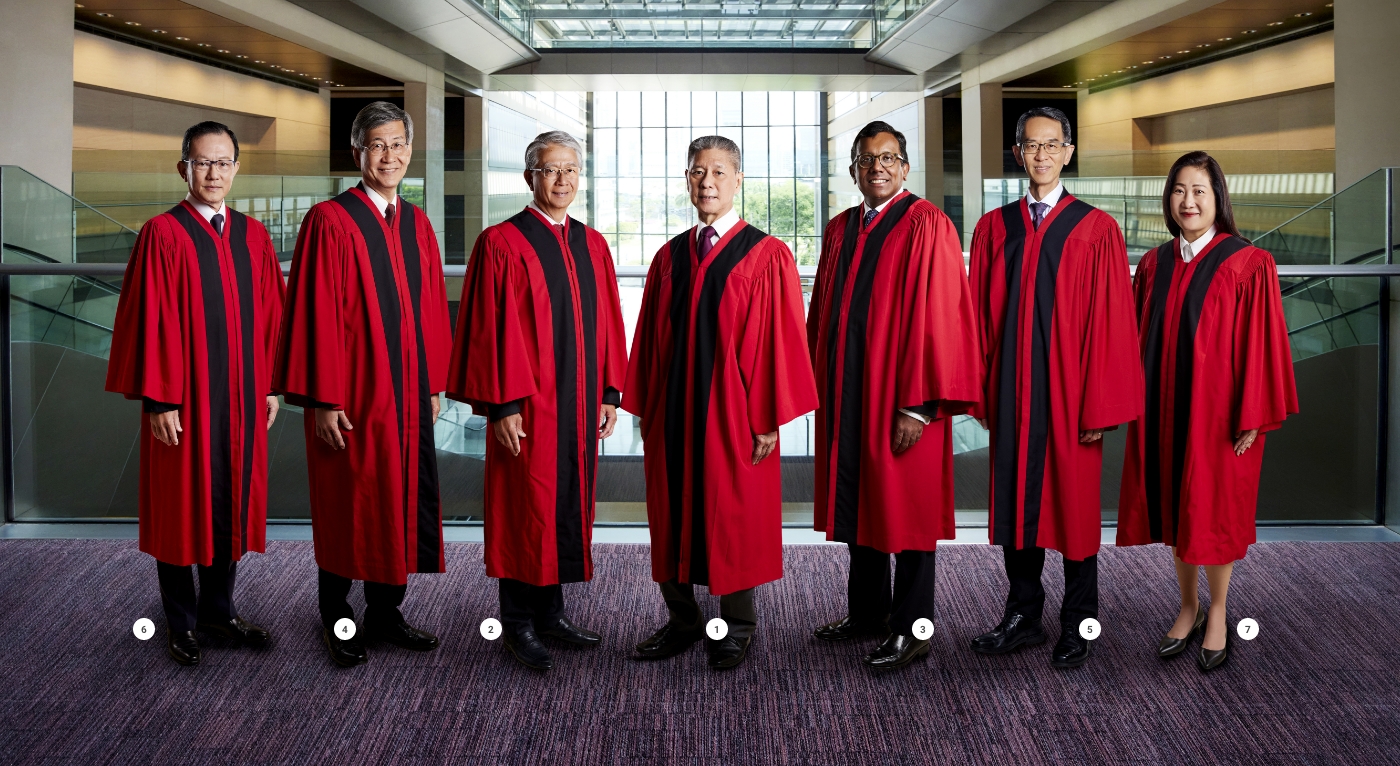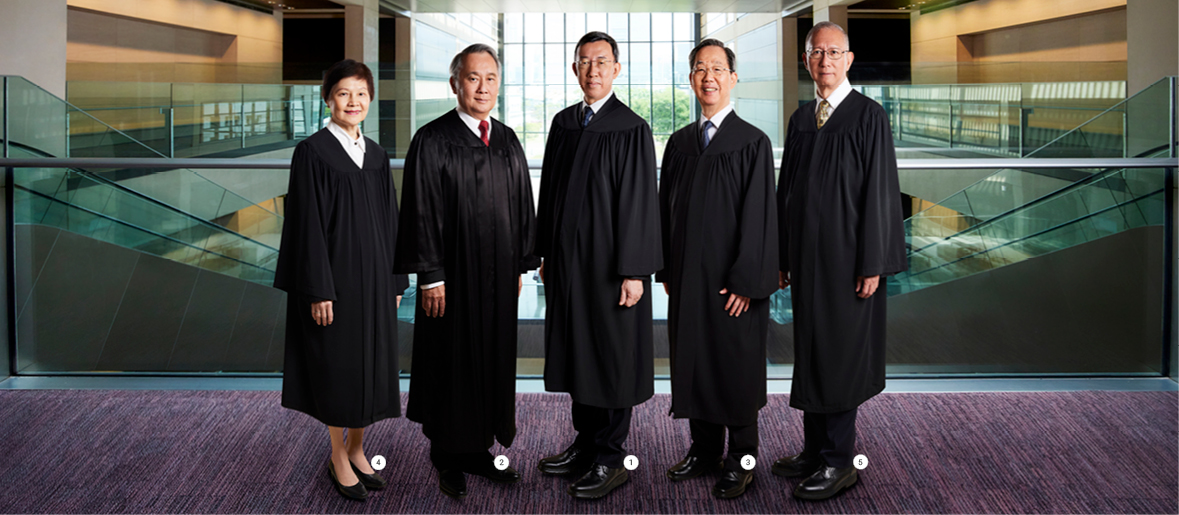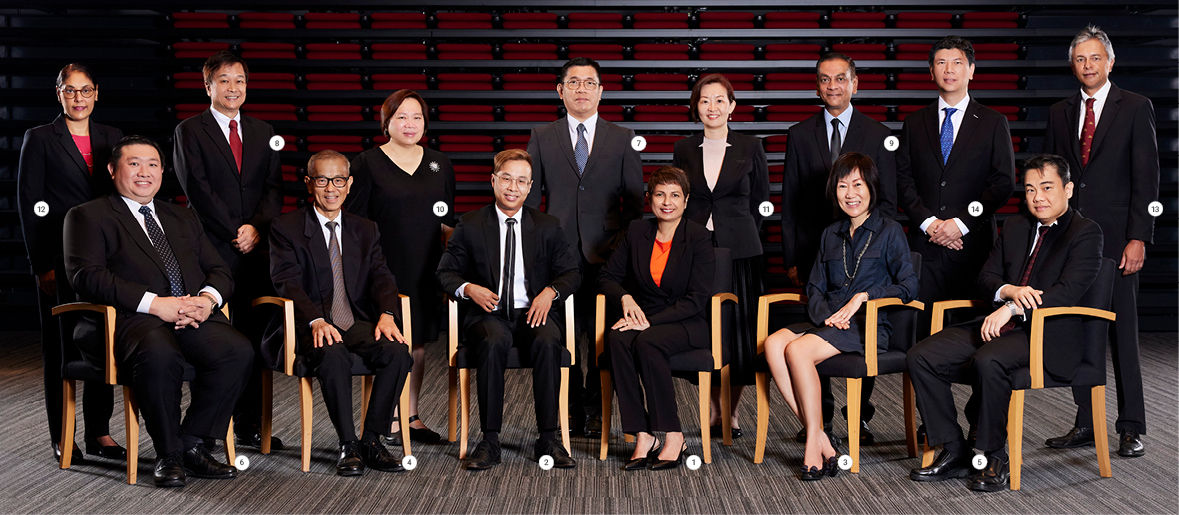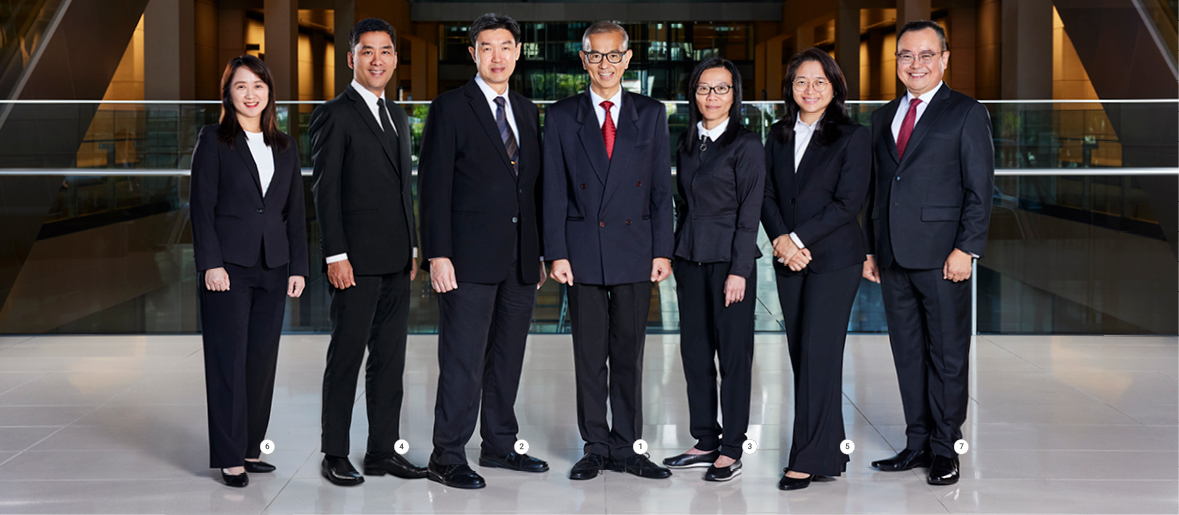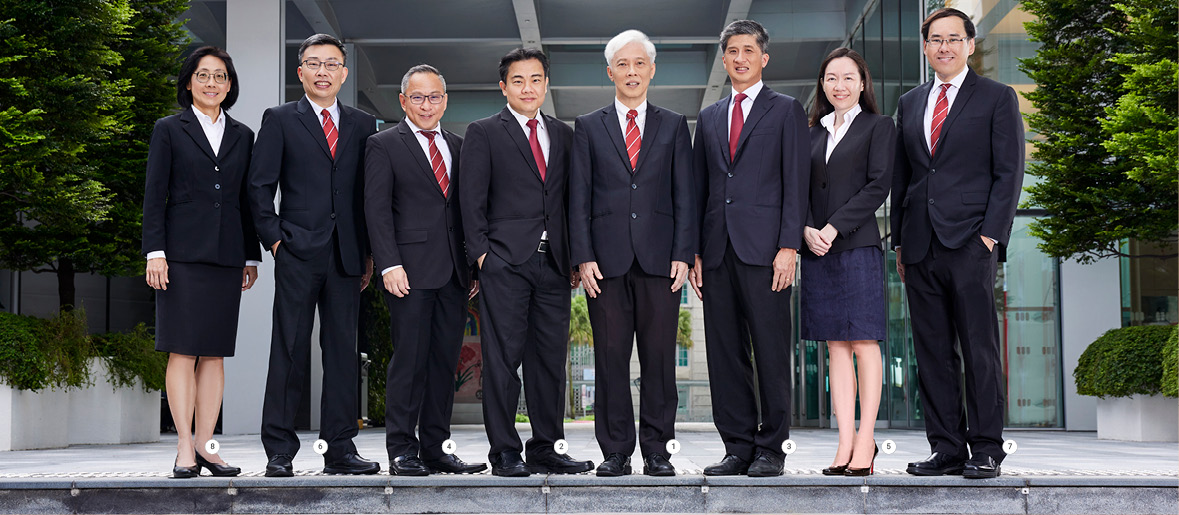ORGANISATIONAL STRUCTURE (AS OF 1 APRIL 2023)
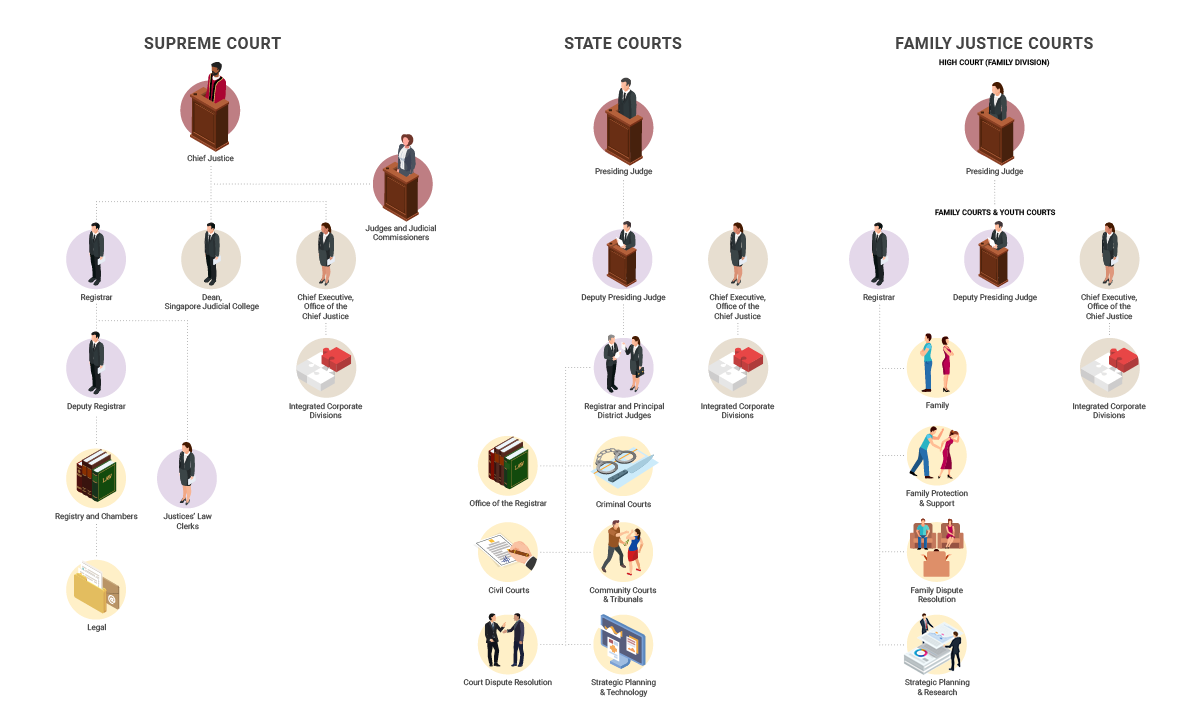



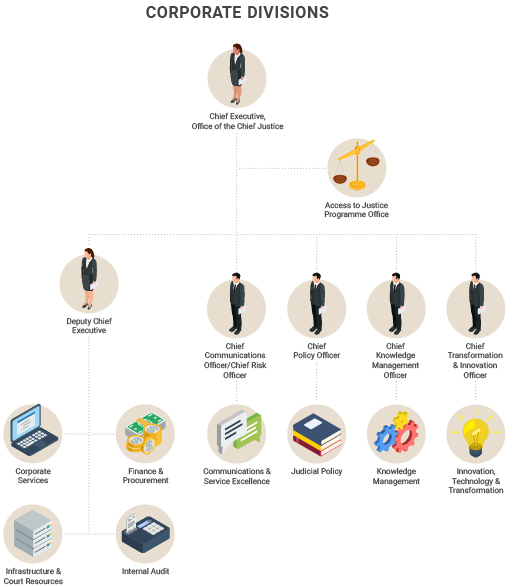
In January 2022, the Judicial Service Commission was established, heralding a wider move to transform the Judiciary to meet the needs of an increasingly complex world. The restructuring underscores our conviction to develop and implement policies to attract the best legal minds, as well as strengthen the Judiciary as an institution entrusted with the administration of justice.
To move forward as ‘One Judiciary’, an integrated framework is required for the SG Courts’ corporate administrative functions. The journey towards One Judiciary began a few years ago with the integration of the Family Justice Courts and the Supreme Court, and was completed with the integration of the State Courts in April 2022. Headed by Ms Juthika Ramanathan, the integrated divisions make up the key corporate functions across the three Courts.
Communications & Service Excellence
Oversees the planning and execution of public engagement and communication efforts to position the SG Courts as a forward-thinking, innovative and trusted judiciary. Equal and continuous access to justice is facilitated through effective public service delivery. It also promotes awareness and usage of the Singapore International Commercial Court among legal and business professionals both regionally and internationally.
Corporate Services
Oversees the SG Courts’ human resources, security, record management (for non-court records) and administrative functions as well as the respective libraries at the Supreme Court and State Courts.
Finance & Procurement
Promotes proper stewardship of the SG Courts’ financial resources, through the implementation of frameworks that promote financial prudence, value-for-money practices and financial accountability.
Infrastructure & Court Resources
Strategises and optimises the use of space, technology and resources that best support court hearings and operations to create an excellent court experience for all court users. It comprises the Building Infrastructure Department, Court Infrastructure Department and Language Resources Department.
Innovation, Technology & Transformation
Coordinates and drives transformation to achieve consistency and to develop new approaches for the work of the Judiciary. It also oversees the acquisition and deployment of technology in the Judiciary.
Internal Audit
Adopts a risk-based approach to evaluate the adequacy of internal control systems—taking into account the organisation’s risk management practices—to enhance and protect organisational values as well as provide objective assurance, advice and insight, while ensuring compliance with government regulations, procedures and sound governance practices.
Judicial Policy
Drives the overall strategic direction of the Judiciary as an integrated whole, and identifies trends and leads in legal reforms. It works with the Access to Justice Programme Office to build trust and confidence in the Judiciary, enhance the Judiciary’s standing on the world stage, and ensure the Judiciary is recognised for championing access to justice, through thought leadership as well as building our International Relations’ capabilities and competencies. There is also a legal advisory unit, which acts as in-house counsel for the Judiciary.
Knowledge Management
Advocates knowledge as a strategic asset for the SG Courts and facilitates the sharing of knowledge and best practices across the Judiciary.

